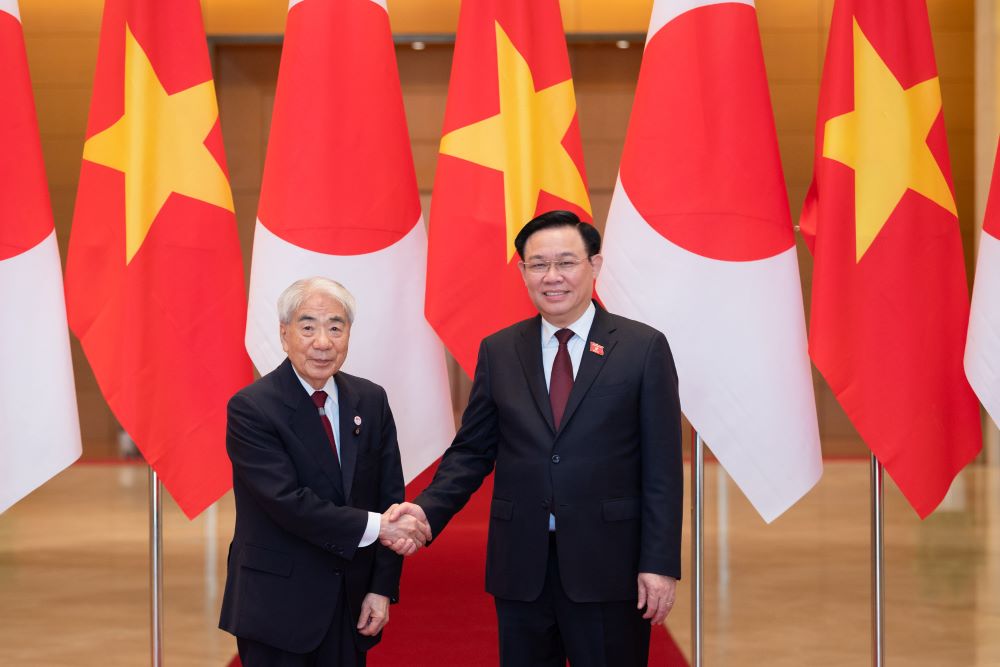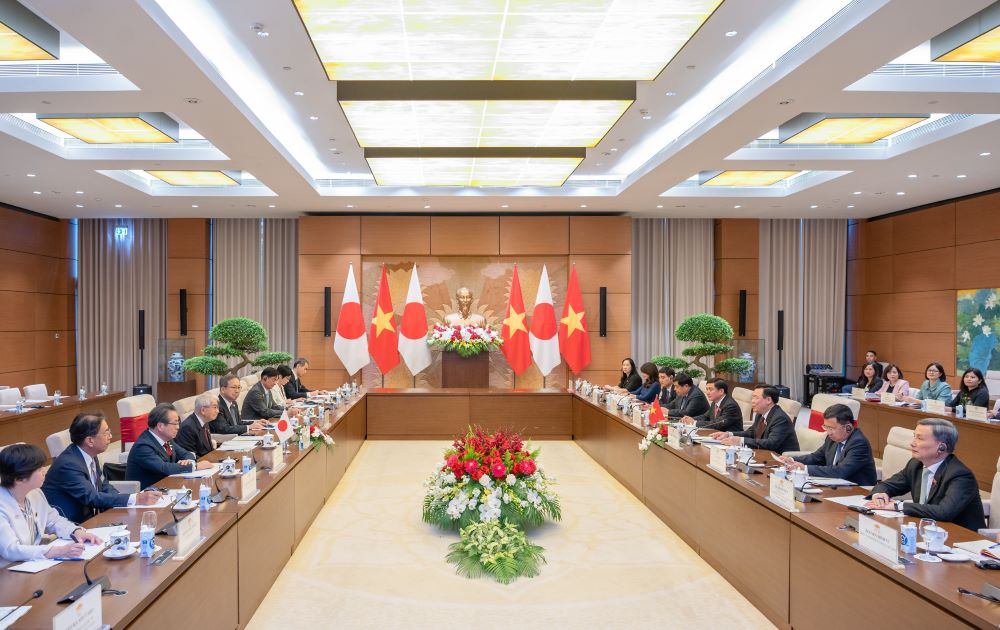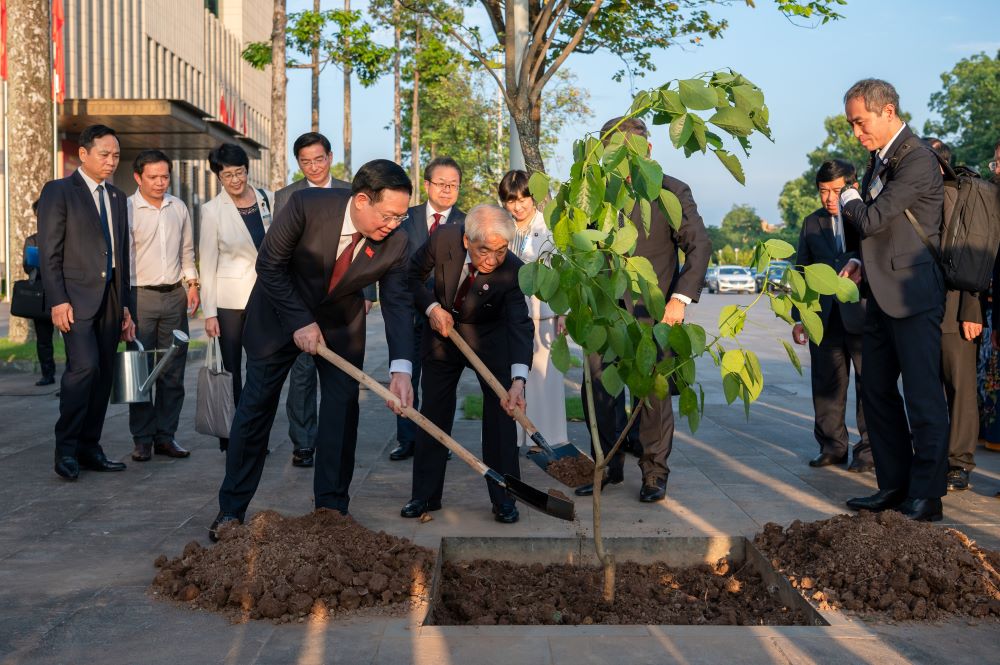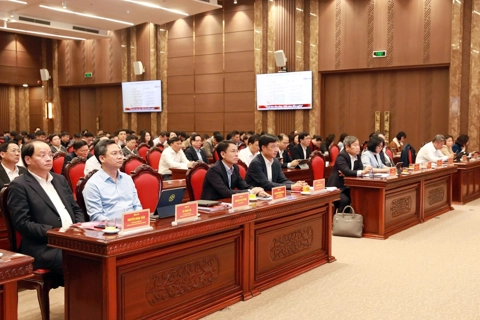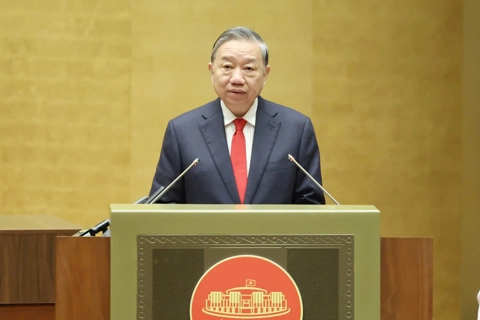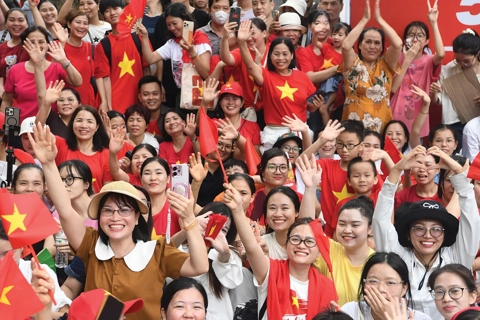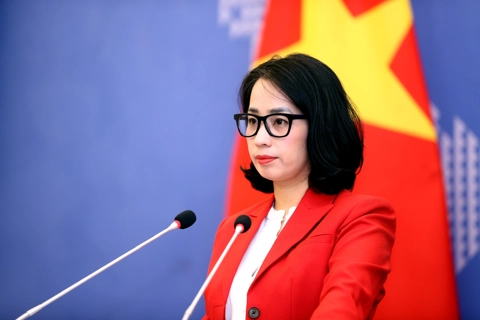Lawmakers support upgrading of Vietnam-Japan relations
Although Vietnam and Japan set up official relationship in 1973, their people-to-people ties were made since the eighth century.
Vietnamese National Assembly supports the upgrading of Vietnam-Japan relations to a new level.
| Chairman of Vietnam’s National Assembly Vuong Dinh Hue (R) and Japanese President of the House of Councilors Otsuji Hidehisa in Hanoi on September 5. Photos: Quochoi |
Chairman of Vietnam’s National Assembly (NA) Vuong Dinh Hue told Japanese President of the House of Councilors Otsuji Hidehisa in Hanoi on September 5 during the Japanese lawmaker’s four-day visit to the Southeast Asian country.
The NA supports the strengthening of the relations between the two countries, which celebrate this year the 50th anniversary of establishing diplomatic ties, Chairman Hue said at the meeting with President Hidehisa.
He said that Vietnam has always valued its relations with Japan, considering the East Asian country a leading and long-term trustworthy strategic partner.
To enhance the relationship, top lawmakers of both countries agreed to continue comprehensive cooperation in politics, trade, investment, and among parliaments.
Regarding politics, the two sides would maintain the exchange of high-ranking visits. They realized that the relationship between the two countries has been improving based on multifaceted cooperation.
On the economic front, Japan is Vietnam’s important partner, being the fourth largest trade partner, the third biggest investor, the second largest labor market, and the third largest tourism market.
In this regard, the lawmakers of both sides exchanged views on potential cooperation with the need to boost strategic connections between the two economies, which do not directly compete with but support each other. They expected that the two countries need further cooperation for better supply chains.
The legislators stressed that as part of Japan’s supply chain diversification efforts, Vietnam is being given top priority. At the same time, Japan is prepared to impart its expertise in economic development to Vietnam.
Regarding investment, Chairman Hue said Vietnam encouraged Japanese investors to pour money into hi-tech, green energy, energy transition, innovation, digital transformation, and climate response. The NA and the Government of Vietnam vow to facilitate the investment of Japanese businesses.
Concerning human resources, Vietnam expected Japan to continue training high-quality human resources in technology, management, and services while offering training courses to high-ranking officials with scholarships.
Regarding official development assistance (ODA), Japan is Vietnam’s biggest ODA provider over the past 30 years, significantly contributing to the country’s hunger elimination, poverty reduction, and socio-economic development. On this occasion, Chairman Hue thanked President Hidehisa for his efforts in the ODA funding to Vietnam over the past three decades.
NA Chairman Hue, President Hidehisa, and Japanese senators all highlighted the importance of parliamentary cooperation in the overall relationship between the two countries when speaking about it.
The Vietnamese National Assembly and the Japanese Senate will soon sign a cooperation agreement to serve as a foundation for future communication and experience sharing between the two legislatures.
| Overview of the meeting. |
Long-lasting relations
According to researchers Thuy T. Do and Julia Luong Dinh, Vietnam and Japan have a generally “problem-free” relationship, in contrast to most other significant bilateral relationships in East Asia.
Even though their official relationship was only established in 1973, there have been people-to-people exchanges between Vietnam and Japan since the 8th century, when a Vietnamese Buddhist monk named Phat Triet conducted his missionary work in Japan.
In the 16th century, Japanese traders established “Japanese towns” in Hoi An in central and Pho Hien in northern Vietnam, where cross-border trade thrived.
Japan was a source of inspiration and a regional hub for Vietnamese patriots. It was the first Asian nation to successfully transform into a major power and avoid Western colonization. Through Japan, Vietnamese patriots learned how to free their country from French colonization and revitalize their nation.
In 2009, Vietnam and Japan lifted the relations to Strategic Partnership, making Japan the first of the G7 countries (Canada, France, Germany, Italy, Japan, the UK, and the US) of Vietnam to this level. It serves to fortify their strategic partnership as a buffer against economic, security, and strategic challenges of mutual concern. Cooperation in security and strategic realms has been strengthened since 2011. In March 2014, Hanoi and Tokyo decided to elevate their ties to the level of an “Extensive Strategic Partnership for Peace and Prosperity in Asia”.
| The two top lawmakers plant Osakazuki Japanese maple tree which brought to Vietnam by President Hidehisa. |


